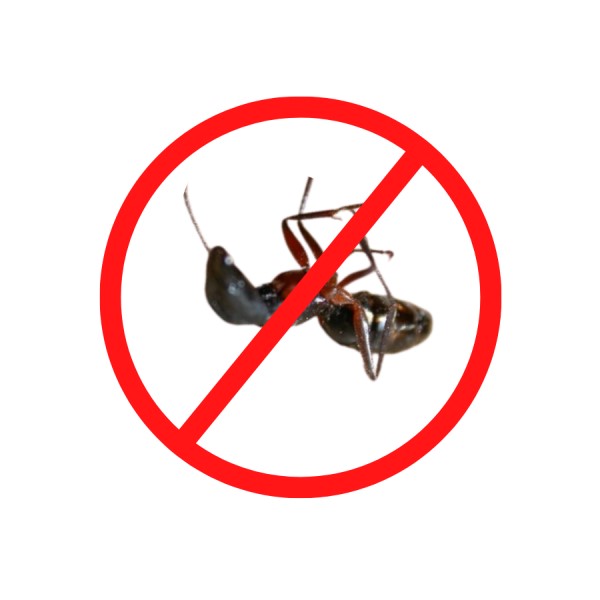Why Select Our Termite Control Services: Professional Solutions for Effective Security
Why Select Our Termite Control Services: Professional Solutions for Effective Security
Blog Article
Environmental Effect of Parasite Control: Balancing Effectiveness With Sustainability
The ecological impact of insect control is a vital concern that calls for a delicate equilibrium in between achieving effectiveness in handling bugs and making sure sustainability of our ecosystems. From the use of unsafe chemicals that leak right into our dirt and water to the unplanned effects on non-target types, the consequences of standard bug control techniques are far-ranging.
Harmful Chemicals in Pest Control
The use of hazardous chemicals in pest control presents substantial environmental and health risks that require careful consideration and mitigation techniques. Chemicals, pesticides, and herbicides are generally made use of to get rid of bugs, yet their extensive application can bring about unintentional consequences. These chemicals can infect dirt, water sources, and the air, affecting not only the targeted pests yet likewise valuable bugs, wildlife, and human beings.

To attend to these threats, incorporated parasite monitoring (IPM) strategies are being advertised as a much more sustainable option. IPM involves a combination of approaches such as organic control, habitat control, and the targeted use pesticides as a last hope (ant control faquay varina nc). By embracing an alternative method to pest control, we can reduce the ecological and health and wellness effects connected with harmful chemicals while properly handling pest populations
Influence on Non-Target Types
Considering the unintended consequences of bug control methods, the influence on non-target types is a vital facet that calls for comprehensive analysis. While insect control measures intend to target particular pests, various other organisms in the environment might be unintentionally affected. Non-target varieties, including beneficial bugs, birds, mammals, and even plants, can endure straight or indirect injury from pesticide applications or biological control approaches.
Pesticides can have sub-lethal or deadly results on non-target species. Insecticides developed to fight a certain bug pest may damage pollinators like or all-natural killers such as ladybugs. In addition, chemical deposits can accumulate in the setting, affecting non-target organisms gradually. Biological control agents, if not species-specific, can present threats to unplanned targets, disrupting the eco-friendly balance.
To reduce the influence on non-target varieties, incorporated bug administration (IPM) methods that emphasize an alternative method to pest control are suggested. These methods prioritize using eco-friendly methods, lessening damage to valuable microorganisms while successfully taking care of pest populaces. Performing detailed threat evaluations and monitoring the end results of pest control efforts are vital actions in protecting non-target species and advertising total ecosystem wellness.
Dirt and Water Contamination
Unintended ecological effects of bug control approaches extend past affecting non-target types, with considerable implications for dirt and water contamination - termite control. Pesticides, herbicides, and chemical plant foods utilized in pest control can leach into the soil and infect groundwater, presenting a hazard to both terrestrial and water environments.
Water contamination is another essential concern connected with pest control practices. Runoff from farming areas treated with chemicals can bring these chemicals right into nearby water bodies, affecting aquatic organisms and water quality. Pollutants in water resources can have far-ranging effects, influencing not just marine life yet additionally human wellness via the intake of polluted water or water organisms. To alleviate soil and water contamination from bug control activities, integrated insect management techniques that prioritize sustainability and reduce chemical inputs are vital.
Air Air Pollution From Chemical Usage
Exposure to air-borne chemicals during farming applications postures a considerable concern for air contamination control measures. Furthermore, chemical drift, where pesticides are brought by the wind to unplanned areas, can lead to the contamination try this out of nearby environments and water bodies.

Strategies for Sustainable Insect Control
In the realm of farming techniques, implementing sustainable pest control techniques is vital for preserving eco-friendly equilibrium and safeguarding crop yields. Sustainable pest control emphasizes the use of eco-friendly techniques to handle bug populaces successfully while reducing harm to non-target organisms and environments. Integrated Bug Monitoring (IPM) is an extensively taken on technique that integrates biological, cultural, physical, and chemical control methods to attain lasting parasite administration options.
Plant rotation and diversity are also efficient techniques to interfere with pest life cycles and produce much less positive problems for insects to grow. Eventually, by incorporating these sustainable pest control methods, farmers can achieve a balance in between pest management efficiency and ecological stewardship.
Verdict
To conclude, the ecological influence of pest control techniques must be thoroughly taken into consideration to stabilize effectiveness with sustainability. Unsafe chemicals used in insect control can bring about soil and water contamination, air contamination, and harm non-target species - termite control services. It is crucial to execute lasting parasite control strategies to reduce these adverse results on the environment and promote a healthier community for future generations
By embracing an all natural approach to pest control, we can reduce the environmental and health and wellness influences linked with hazardous chemicals while effectively managing pest populaces.

To reduce the air pollution created by pesticide use, it is essential to embrace incorporated pest administration strategies that prioritize the use of non-chemical bug control techniques, such as plant rotation, natural killers, and immune crop selections. Sustainable pest control emphasizes the use of eco friendly techniques to take care of pest populations successfully while minimizing damage to non-target microorganisms and environments. Integrated Pest Administration (IPM) is a commonly taken on strategy that combines biological, cultural, physical, and chemical control techniques to attain long-term insect administration remedies.
Report this page